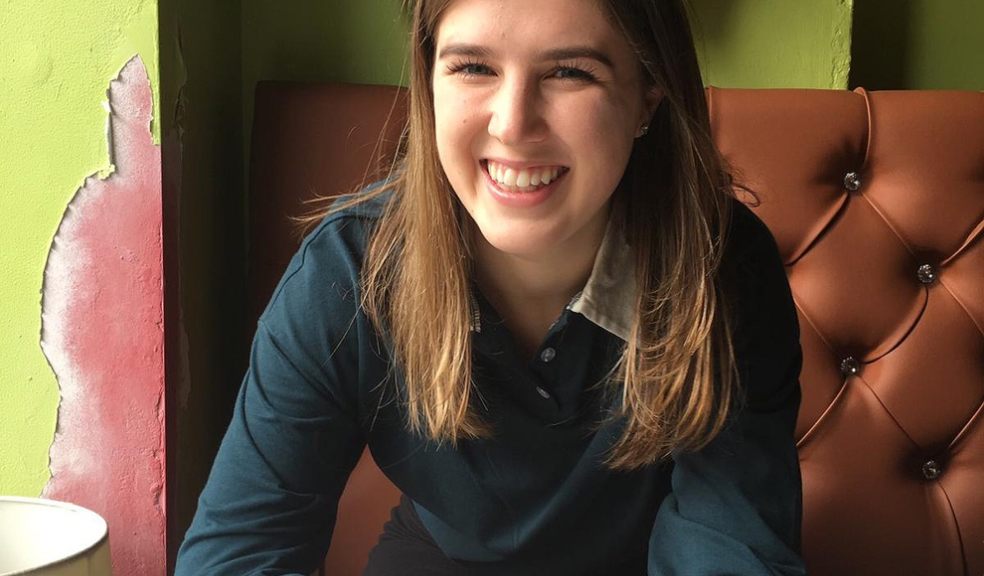
Beloved daughter remembered at Brain Tumour Research centre
Family and friends of a young woman lost to a brain tumour have visited a research centre where scientists are searching for a cure for the disease which took her life.
Mum Paula D’Souza from Exeter and dad Michael Bullous of Teigngrace, Newton Abbot, were invited to the Brain Tumour Research Centre of Excellence at the University of Plymouth on Wednesday (27 April) to place tiles on the Wall of Hope in memory of Emma Louise Bullous, who passed away in January 2021, aged 23.
Emma, who graduated from Birmingham University in 2019 with a BSc in Geology and Physical Geography, was diagnosed with an incurable brain tumour in July 2020 after only four weeks of symptoms. She was told she may not survive longer than two months, but in fact survived for six.
Since losing Emma, the family have raised enough to sponsor two days of research for the charity Brain Tumour Research.
Paula was accompanied by Emma’s stepfather Richard and half-sister Hannah D’Souza while Michael came with his fiancée Charlotte Faulkner and Emma’s half-sister May Bullous. Also invited were two of Emma’s close friends she had known since starting at Maynard School in Exeter at the age of seven, Robyn Morrish and Lucy Persse, as well as supermodel and entrepreneur Caprice Bourret, patron of Brain Tumour Research after she was diagnosed with a meningioma (the most common primary brain tumour among adults) and one of the types of brain tumour on which researchers at Plymouth are focusing their work.
They were all among a select group of supporters given the opportunity to tour the labs led by principal investigator Professor Oliver Hanemann, and speak to scientists about their work to find a cure for the disease, before placing two tiles on the Wall of Hope.
Each tile placed on the Wall represented the £2,740 it costs to fund a day of research and celebrates the fundraising achievements of the family or supporter involved.
Brain tumours kill more children and adults under the age of 40 than any other cancer, yet historically just 1% of the national spend on cancer research has been allocated to this devastating disease.
Paula said: “Emma was a deeply loving and caring daughter who had her whole life ahead of her. We hope that the support we have been able to give to the Brain Tumour Research Centre of Excellence at Plymouth will go some way to improving the outcomes for others in the future.”
Mel Tiley, community development manager at Brain Tumour Research, said: “We’re really grateful to Emma’s family and friends for their support and hope they inspire others to fundraise for Brain Tumour Research.
“Emma’s story reminds us that just 12.5% of those diagnosed with a brain tumour survive beyond five years compared with an average of 50% across all cancers. We cannot allow this desperate situation to continue. Brain Tumour Research is determined to change outcomes for brain tumour patients and ultimately find a cure.”
Brain Tumour Research funds sustainable research at dedicated centres in the UK. It also campaigns for the Government and the larger cancer charities to invest more in research into brain tumours in order to speed up new treatments for patients and, ultimately, to find a cure. The charity is the driving force behind the call for a national annual spend of £35 million in order to improve survival rates and patient outcomes in line with other cancers such as breast cancer and leukaemia and is also campaigning for greater repurposing of drugs.
To find out more about Sponsoring a Day of research go towww.braintumourresearch.org/fundraise/sponsor-a-day






















